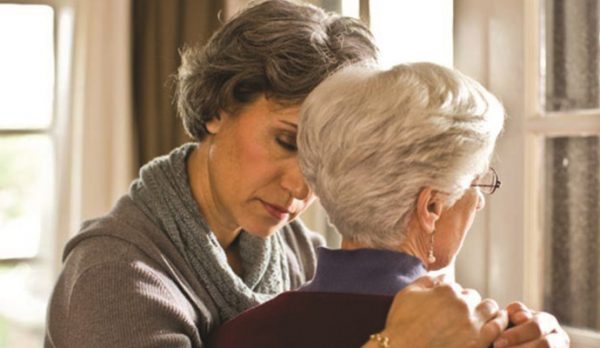Help Yourself Help Others
Families are the mainstay when it comes to providing long-term care to the elderly or disabled, more so than nursing homes, government agencies, or private agencies. More that 22.4 million people in the United States provide some form of informal, unpaid care to someone who is elderly or disabled. Those caregivers include spouses, children, other family members, and friends. Caregivers face a variety of physical, emotional, and socio-economic strains that can cause caregiver stress and, if not properly relieved, lead to caregiver burn-out.
Physical Demands
Caregivers are often required to do a number of physical activities that can stress the body. These may include:
- Lifting the patient (in and out of a bed, wheelchair, bathtub, or car)
- Turning the patient from side to side in bed
- Bathing the patient
- Feeding the patient
- Cooking for the patient as well as for themselves
- Additional shopping
These physical tasks can be very exhausting, especially when piled on top of other demands such as caring for young children and work. These physical demands can also be very difficult for caregivers that are elderly or frail themselves.
Emotional Demands
Caring for someone who is ill or disabled can be very taxing emotionally as well. Sometimes the person you’re caring for can’t remember you or has a hard time following directions or communicating their needs, particularly if he or she suffers from dementia. The person you’re caring for may also have behavioral problems such as yelling, hitting, biting, or wandering away.
This may make you feel frustrated, angry, or resentful towards your loved one.
Socio-economic Demands
Let’s face it – caring for someone can be a thankless job and it is almost always done without pay or reimbursement. It can demand so much of your time that you are unable to continue working. It can also be very costly.
Most items needed for day-to-day care aren’t covered by insurance such as adult diapers, food and health shakes, latex gloves, etc. These factors combined can really put a dent into your financial situation.
Am I Stressed?
It would probably be abnormal to not have any days when you feel stressed. Stress that doesn’t get any better after a short time or is getting worse needs to be dealt with before it leads to burn-out. Common signs of caregiver stress include:
- Feeling sad or moody
- Crying more than is normal for you
- Having low energy
- Feeling like you don’t have any time for yourself anymore
- Changes in sleeping patterns (insomnia or sleeping too much)
- Changes in eating patterns (having no appetite or overeating)
- Isolating yourself from friends and family
- Losing interest in hobbies
- Feelings of anger or resentment towards the person you are caring for
All of these feelings are normal and can occur from time to time as you care for someone. The important thing to remember is to take care of you as well.
You are no good to others if you’re stressed out and sick yourself.
I Am Stressed! Now What?
Remember first and foremost that this is normal. Talking to your doctor, nurse, medical social worker, or chaplain can be helpful in finding ways to manage the stress that goes along with care-giving. You may need to ask family or friends for help so you can take a break. Asking for help does not make you a failure and taking a short break can help reenergize and refresh you. If you have any type of supportive in-home care, such as home health or Hospice care, take advantage of the times that the nurse or home health aide is there. Take a short break and escape to your room with a good book knowing your loved one is in capable hands.
Caregiver Burnout
If caregiver stress continues without treatment, burnout is a real possibility. Burnout is essentially when you feel so overwhelmed that you are unable to care for your loved one and often unable to care for yourself. If think you are reaching that point or are already there, it is important to find help. The first thing you need to do is find medical attention. Then, you can utilize resources in your community. These may include:
- Adult Day Care – If the person you are caring for is able to safely leave the home, this may be a good option. These centers offer seniors a place to socialize and participate in activities and provide you a much needed break.
- Skilled Nursing Facilities – Nursing homes (or convalescent hospitals) and assisted living facilities may be able to provide you with respite care. Especially if your loved one is on Hospice. Respite care is part of the Medicare Hospice Benefit.
- Private Care Aides – Private aides can be hired for a variety of schedules. You may want help for just a couple of hours a day to take a short break or you may choose to have someone there around the clock.
Utilizing this type of support requires financial resources so if you are a little strained in that area as well, start with your church or synagogue. They may have programs that offer support. There may be other community supported programs in your area that offer respite services as well. You can also look into the National Family Caregiver Support Program (NFCSP) through the U.S. Department of Health and Human Service’s Administration on Aging (AoA). They can assist you in finding resources in your area. Their website can be found at www.eldercare.gov or you can call 1-800-677-1116 for more information.
Just remember that you are not alone. Taking care of yourself does not make you selfish or uncaring towards your loved one. Taking care of yourself means you will have all the strength, compassion, and patience needed to provide the best care to others.
Complete Article HERE!

